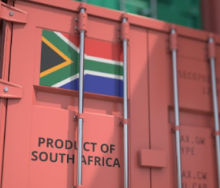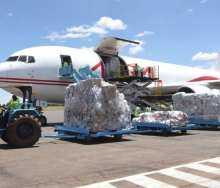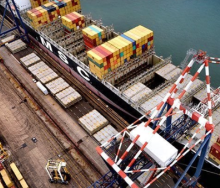Renewable hydrogen and hydrogen-derived commodities – such as ammonia, methanol and e-kerosene – are expected to play an important role in the transition to low-carbon energy because they are essential to decarbonise sectors such as heavy industry and transport.
That’s according to a report jointly produced by the International Renewable Energy Agency and the WTO, which highlights the critical role of sound, coherent strategies in promoting the use of renewable hydrogen and hydrogen-derived commodities.
By 2050, renewable hydrogen and its derivatives could account for up to 14% of final energy consumption, especially in industry and as sustainable fuels, the report points out. “Economies with abundant renewable resources may increasingly emerge as renewable energy exporters, whereas economies with strong industrial sectors but limited renewable energy sources may need to rely on imports to decarbonise their processes.”
The report warns that to develop a robust international market for these commodities and fuels, infrastructure investment, coherent policy frameworks and sustainable value chains will be required.
The development of an international market for renewable hydrogen and its derivative commodities will require significantly scaled-up, sustainable value chains. In addition, physical infrastructure is needed - for example, pipelines and shipping facilities are necessary to transport commodities from producers to consumers.
The report emphasises that international collaboration is essential to lower trade barriers and build stable demand for renewable hydrogen and its derivatives.













